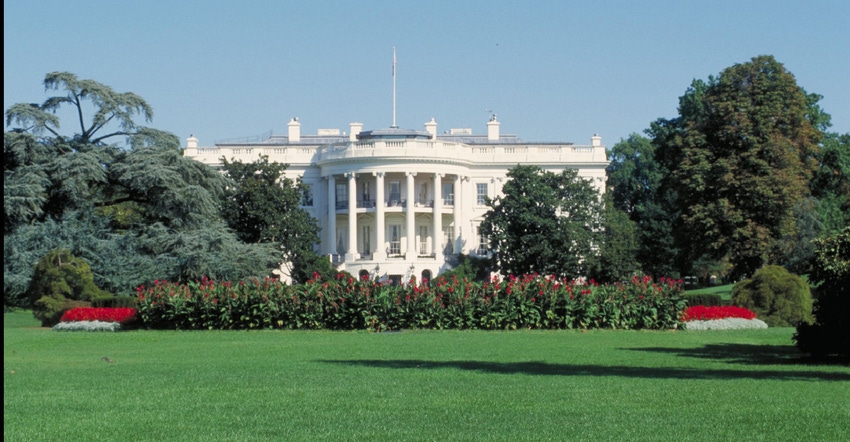The Protecting America’s Food & Agriculture Act of 2019 authorizes hiring of 240 Agricultural Specialists a year until the workforce shortage is filled.
March 5, 2020

The Protecting America’s Food & Agriculture Act of 2019 has been signed by President Trump.
The legislation, introduced by Sens. Gary Peters (D-MI), Pat Roberts (R-KS), Debbie Stabenow (D-MI), and John Cornyn (R-TX), addresses the shortage of agricultural inspectors who work at U.S. borders. The legislation authorizes U.S. Customs and Border Protection to hire additional inspectors, support staff and K-9 teams to fully staff America’s airports, seaports and land ports of entry.
Michigan is home to two of the nation’s busiest border crossing. Every day, approximately 300,000 people and $910 million in trade cross the Northern Border, which is the largest bilateral flow of goods and people in the world.
Peters serves as the Ranking Member of the Senate Homeland Security and Governmental Affairs Committee, and Roberts and Stabenow are Chairman and Ranking Member of the Senate Committee on Agriculture, Nutrition, and Forestry, respectively. U.S. Rep. Filemon Vela Jr. (D-TX) introduced the companion legislation in the House.
“Michigan’s valuable agricultural industry depends on the safe and secure flow of goods and people through our nation’s border crossings,” said Peters. “That secure travel is made possible by the hardworking border security professionals charged with safeguarding our state against diseases, pests, and other threats that could devastate our farm economy and compromise the health and safety of millions of Americans.”
“I’m proud that our bipartisan bill is being signed into law to support the agricultural inspectors serving at our borders,” Roberts said.
“I’m pleased we will now be able to hire more agricultural inspectors at our borders to protect farmers, consumers, and the safety of our food supply," Stabenow said.
“Each year, hundreds of billions of dollars in goods pass through Texas’ land, air, and sea ports of entry,” Cornyn said. “This law will increase the number of inspectors safeguarding the safety and integrity of goods and products coming across our border, which will benefit not just Texans but all Americans.”
“We worked across the aisle, through both chambers, to ensure Agriculture Specialists and Technicians at our ports of entry are adequately staffed to carry out critical Agriculture Quarantine Inspections that safeguard America’s agriculture sector from pests and foreign animal diseases," said Congressman Vela. "I know there is more work to be done and we will continue to work to ensure that our ports of entry have the resources they need to maintain and improve the safe flow of goods.”
Border protection
USDA and CBP work together to facilitate safe and secure importation of agricultural goods into the U.S. The program’s Agricultural Specialists and K-9 units conduct inspections of passengers, commercial vessels, trucks, aircraft and railcars at U.S. ports of entry to protect health and safety by preventing the entry of harmful goods and invasive species that may pose a threat to American food and agriculture. On a typical day, those inspectors process more than 1 million passengers and 78,000 truck, rail and sea containers carrying goods worth approximately $7.2 billion. According to CBP estimates, there is a shortage of nearly 700 inspectors across the country.
Related: Senate approves bill to fund more border inspection agents
The Protecting America’s Food & Agriculture Act of 2019 authorizes the annual hiring of 240 Agricultural Specialists a year until the workforce shortage is filled, and 200 Agricultural Technicians a year to carry out administrative and support functions. The bill also authorizes the training and assignment of 20 new K-9 teams a year, which have proven valuable in detecting illicit fruits, vegetables and animal products that may have otherwise been missed in initial inspections. Finally, the bill authorizes supplemental appropriations each year to pay for the activities of the agriculture specialists, technicians and K-9 teams.
Source: Senate Committee on Agriculture, Nutrition and Forestry, which is solely responsible for the information provided and is wholly owned by the source. Informa Business Media and all its subsidiaries are not responsible for any of the content contained in this information asset.
You May Also Like



